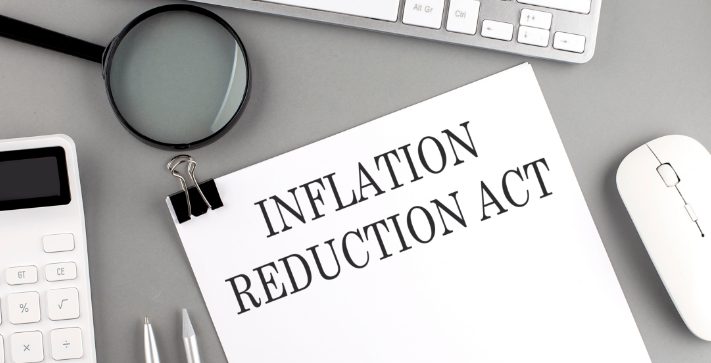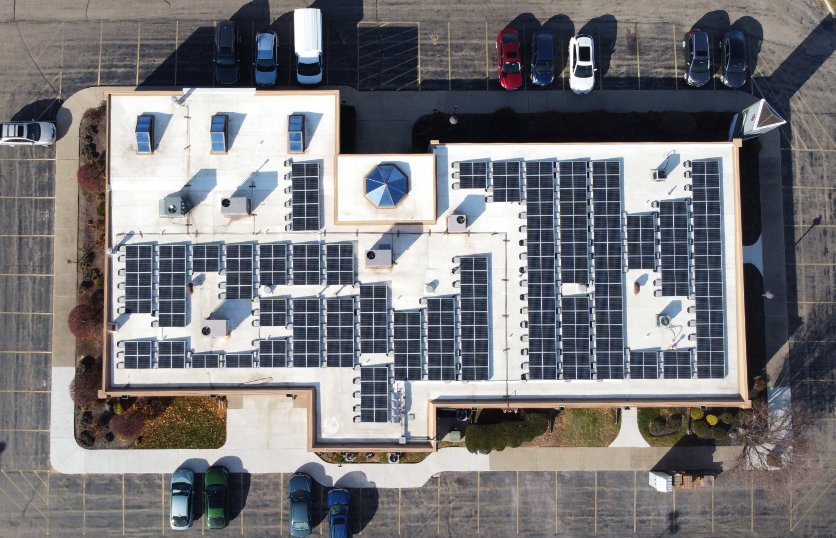Unlock Savings for Businesses With the Inflation Reduction Act

In August of 2022, Congress passed the Inflation Reduction Act (IRA), marking a significant milestone in the nation's efforts to combat climate change and promote renewable energy adoption. As one of the boldest climate packages to date, the IRA aims to reduce the nation’s overall deficit and inflation while making unprecedented investments in renewable energy and a decarbonized grid.
With close to $369 billion allocated to investments into the nation’s energy security and climate change, the IRA is expected to slash greenhouse gas emissions by about 40% below 2005 levels by 2030. To achieve the goals set forth, the government will utilize direct incentives and rebates for renewable energy, energy-efficient upgrades, and electric appliances. The IRA takes a step in the right direction to start lowering greenhouse gas emissions and the effects of climate change. In addition to providing environmental benefits, the IRA will create numerous jobs in the clean energy sector.
Investment Tax Credit
The IRA extends the Investment Tax Credit (ITC) at a rate of 30%, superseding the previous phase-down plan. This extension applies to both commercial and residential solar projects installed in 2022 and beyond, offering businesses substantial deductions in federal corporate income taxes. Moreover, the IRA broadens the scope of eligible technologies and allows for direct transfer of tax credits, providing unprecedented support to the clean energy sector. The ITC will remain in effect until the start of 2025, after which it will transition to the Clean Electricity Investment Credit (CEIC), ensuring continued financial incentives for solar projects until emissions from US electricity production are significantly reduced.
Battery Storage
Recognizing the pivotal role of battery storage in enhancing resiliency and optimizing energy usage, the IRA expands tax incentives to standalone energy storage projects. Previously ineligible for tax credits unless paired with solar installations, battery storage projects now qualify for the 30% tax credit independently. This provision unlocks opportunities for businesses to deploy energy storage solutions strategically, mitigating peak demand charges and enhancing overall energy efficiency.
Tax Credit Adders
Starting in 2023, certain projects meeting additional criteria can qualify for enhanced tax credits, stacking on top of the 30% credit:
- Domestic Content: Projects utilizing domestically manufactured components can increase a business’ tax credit by an additional 10%, reinforcing support for U.S.-based manufacturing and supply chains.
- Energy Community Benefits: Projects located in former "energy communities" are eligible for an extra 10% tax credit, promoting economic revitalization in areas historically reliant on fossil fuels. This useful mapping tool helps you see if you are in an energy community.
- Environmental Justice Initiatives: The IRA allocates capacity for environmental justice solar and wind projects, offering additional tax credits to projects benefitting low-income communities or tribal lands. Qualifying projects can receive up to 20% bonus investment credits, supporting equitable access to clean energy solutions.

Unlocking a 60% Tax Credit Opportunity
In addition to the standard tax credit opportunities, these adders make for a remarkable chance for solar power projects to maximize their tax benefits. When combined with the 30% tax credit base, the potential adders for domestic content, within an energy community and in a “low-income community" or on “Indian land,” can elevate the overall tax credit potential to an impressive 60%.
Direct Pay
Certain types of tax-exempt organizations, state and local government entities, nonprofits, or rural electric cooperatives may now be eligible to receive the ITC as a direct payment from the IRS. This will allow these types of organizations to reap more benefits and savings from direct ownership, versus having to rely on a power purchase agreement (PPA) system.
Production Tax Credit
The Production Tax Credit (PTC) has long been instrumental in driving the development of renewable energy sources. Calculated per kilowatt-hour (kWh) of electricity generated and sold using qualified energy resources, this credit provides a financial incentive over a ten-year period. With the expiration of the PTC at the end of 2021, the IRA breathes new life into this vital incentive. Notably, the IRA extends the PTC and, for the first time, extends its eligibility to solar energy projects. However, it's important to understand that a project can only utilize either the ITC or the PTC, but not both simultaneously.
Our Thoughts
The IRA is taking the right step toward a cleaner and greener future. By 2030 greenhouse gas emissions are estimated to be reduced to 40% of 2005 levels. With the enactment of the IRA, solar energy has increasingly become an appealing option for businesses as a way for them to cut overhead costs.
Navigating the landscape of financial solar incentives and staying up to date with the ever-evolving legislative changes can present challenges. Nelnet Renewable Energy is here to guide you through the solar journey and help maximize your savings.
Contact Our Team